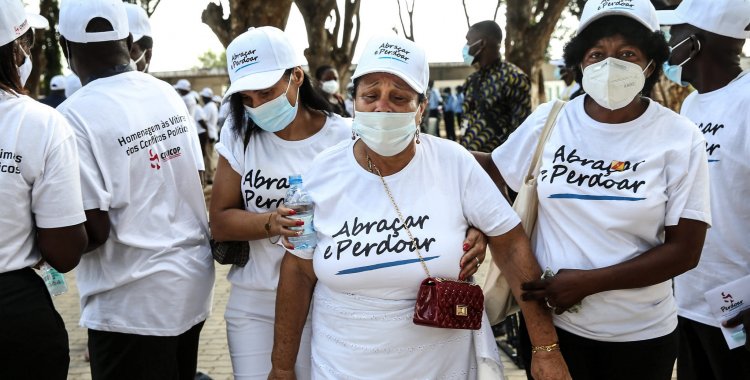"The 27th of May Platform (...) comes to express a series of concerns regarding developments in the process of locating victims of political repression in Angola that victimized thousands of citizens between 1977 and 1980, as well as the return of mortal remains to their homes. families and the establishment of the truth about these events", reads a statement.
Although "the extent of human rights violations in the tragic events" of 27 May 1977 has already been recognized by the President, João Lourenço, the Platform considers that it is important to address "urgent issues" in relation to the procedures developed by the Commission for the Implementation of the Reconciliation Plan in Memory of Victims of Political Conflicts (Civicop).
These issues are the "founded fears that the exhumation process is not proceeding in accordance with good national and international practices in forensic anthropology", for which he cites the "undignified display" of a report on the Rádio Pública de Angola (TPA), on 15 November.
The lack of information on the methodology of the second phase of Civicop's current work, involving those responsible for the crimes in question in the location of mass graves and the issuance of death certificates prior to the exhumation processes, "without indication of the cause, location and date of death", are highlighted by the Platform.
The lack of dignity and quality of the places for "placement of mortal remains", the lack of monitoring of the works by the Platform, "as a result of Civicop's imposition" complete the "urgent questions" invoked.
In this regard, the Platform "urgently urges the Government of Angola to urgently monitor the second phase of Civicop's work, to ensure that this process, already late, conforms to the parameters internationally required in the justice, truth, reparation and reconciliation processes recognized by the Committee for the Enforced Disappearances of the United Nations".
On May 27, 1977, an alleged coup attempt, in an operation apparently led by Nito Alves - then a former interior minister since independence (11 November 1975) until October 1976 - was violently repressed by the regime. by Agostinho Neto.
Six days earlier, on 21 May, the Popular Movement for the Liberation of Angola (MPLA, in power) had expelled Nito Alves from the party, prompting the former minister and several supporters to invade Luanda prison to free other supporters, assuming, in parallel, the control of the national radio station, becoming known as "fractionists".
The troops loyal to Agostinho Neto, with the support of the Cuban military, ended up containing the uprising and establishing order, and arresting the insurgents, followed by what became known as the "purge", with the elimination of factions, having some 30,000 people have been killed, mostly without any connection to Nito Alves, as Amnesty International has stated in several reports on the matter.
In April 2019, the President, João Lourenço, ordered the creation of a commission (Civicop) to draw up a general plan to pay homage to the victims of the political conflicts that took place in Angola between November 11, 1975 (independence day) and 4 April 2002 (end of civil war).







